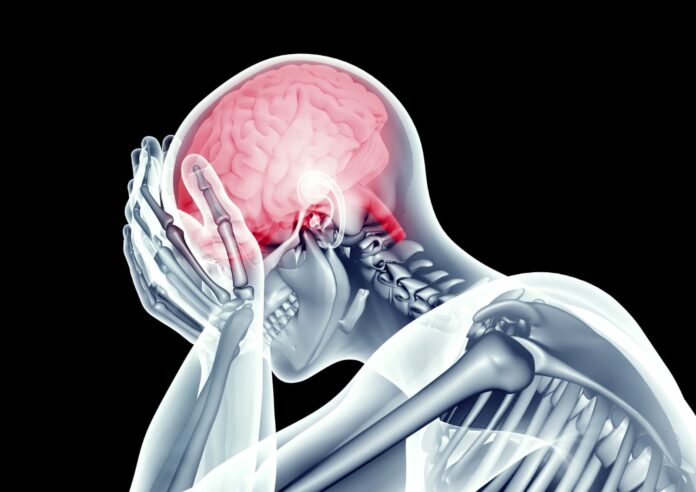Did you know that almost 30 million people in the United States suffer from sinusitis, which is an allergy problem?
Sinusitis can stem from illnesses or allergies, causing nasal congestion and terrible headaches.
You might have searched online, what are the symptoms of a sinus headache only to discover that there are many.
Continue reading to learn more about sinus headaches and their symptoms so that you know what you are up against!
Stuffy Nose
One of the most common symptoms of a sinus headache is having a stuffy nose.
Congestion that is difficult to get rid of is a big indicator that you are fighting an infection. Taking allergy medications or sinus meds can help loosen mucus. When your mucus can loosen, it makes blowing your nose more effective and relieves pressure.
A stuffy nose increases sinus pressure, which is what causes sinus headaches. If you can improve congestion, you will likely notice a difference in how you feel. Many people get sensitive skin after blowing their noses with tissues, try using a kettle with water to clear your nasal passages instead.
Feeling Fatigued
You should look up what are the symptoms of a sinus headache if you are feeling more tired than normal.
Fatigue is a common symptom associated with sinus headaches. This is because when you have a sinus infection, your body requires extra energy to defend itself. When people are in pain or unable to breathe easily, they can get exhausted quickly and have a hard time staying awake.
If you are feeling tired, physically or mentally, try to take a nap and get some rest. The more that you can sleep, the more energy your body will have to fight the infection. Some people feel pressure when they lay down, propping up can help prevent this discomfort.
It is also beneficial to use a heating pad on your forehead or under your neck. This will help relax your muscles and sinuses.
Tooth Pain
If you are looking for sinus headache tips for tooth pain, you are in luck.
Sinus cavities surround your nose and are also located near your teeth. When the sinus cavities get inflamed or swollen, they put pressure on teeth and gums. This can cause a lot of discomfort, especially when you are trying to eat.
To reduce and prevent tooth pain, you can take a pain reliever, such as ibuprofen to reduce swelling. Another way that you can relieve this symptom is by eating cold foods or beverages that help with swelling and numbing the area.
Most people don’t have tooth pain for very long. Contact your doctor if the pain isn’t going away to ensure that you don’t need medical help.
Pressure in Your Head
Mucus channels are typically clear, but when they get blocked, they can cause head pressure.
Most channels get blocked due to poor congestion or swelling. It is common for people to notice this symptom when they bend over or move quickly. These movements can affect the pressure and feel like a moving headache.
You will get pressure on your head, cheeks, and around the nose if the pressure is bad. Controlling your congestion is the best way to treat this symptom. Pain relievers and anti-inflammatory meds can help reduce the discomfort so that you can move around like normal.
There are also pressure points, like the ones on this list, that you can use to open up nasal passages and reduce swelling.
Full Cheeks
Are you feeling pain, pressure, or fullness in your cheeks?
If so, you are likely dealing with a sinus headache. The blocked nasal cavities cause pressure to build up and many of the cavities are near your cheeks. It is normal to feel this pressure in your face, and many people get red cheeks.
Applying a cold pack is a great way to get rid of some of the pain, just be sure to remove it after 20 minutes. Massaging your cheeks and around your nose can also help. The massaging will help loosen up mucus cavities to relieve some pressure and make nose-blowing more effective.
Pressure Around Forehead
Did you know that sinus cavities go up high enough to affect your forehead?
For the same reason, you feel pain in your cheeks and head, you will also feel it in your forehead. The swollen cavities put pressure on other areas inside of your face and cause pain. Some people say that the pressure feels similar to a bruising feeling.
Allergic reactions and infections are common causes of this pain, but it could also be another type of headache. If you feel a headache in a band shape going around your head, it could be a migraine or pressure headache instead.
Eye Pain
Sinus cavities and passageways surround your eyes, which is why it might feel like they could pop out of your head.
The swollen cavities put a lot of pressure on your eyeballs which can impact your sight and cause pain. Massaging your face, applying a heating pad, and getting rest are the best ways to combat this symptom.
Try to avoid things that will irritate your eyes if you have this pressure. Cutting onions, looking at bright lights, and rubbing your eyes can make the pain worse.
What are the Symptoms of a Sinus Headache, Do You Know?
You might be wondering, what are the symptoms of a sinus headache if you are feeling under the weather.
This sinus headache guide will help you differentiate between sinus headaches and migraines. Swollen mucus cavities are the main cause for getting pain and pressure in your head or face. If you want to get rid of sinus headaches, you need to treat the root of the problem, which is congestion.
Be sure to check out our blog for more articles about sinus headache treatment and how to prevent sinus issues!









